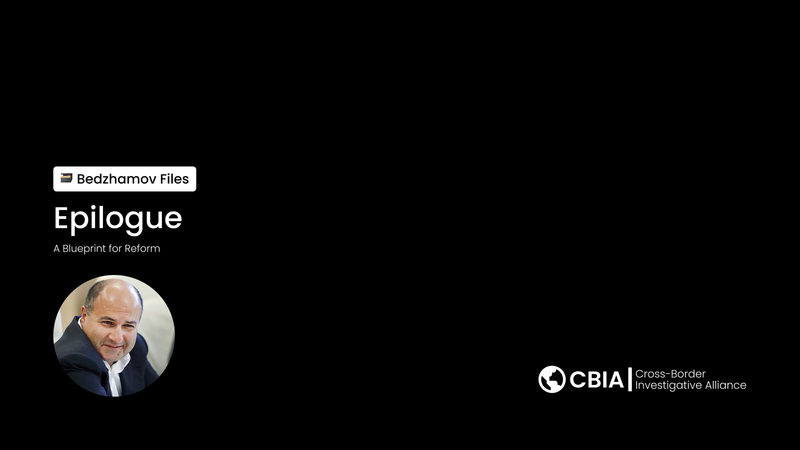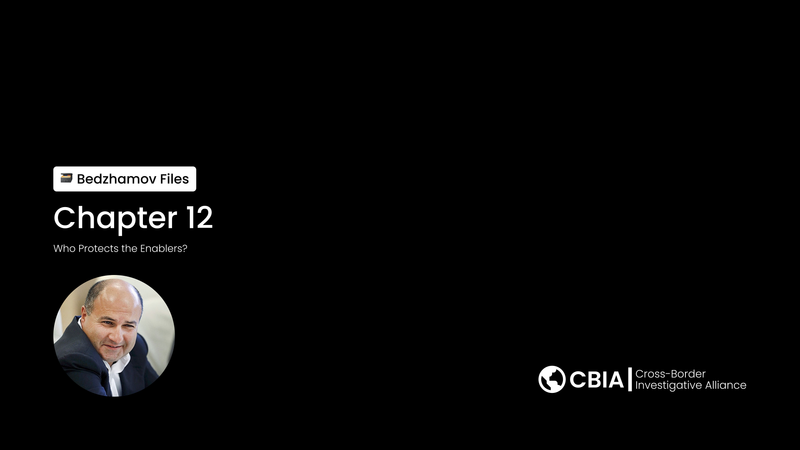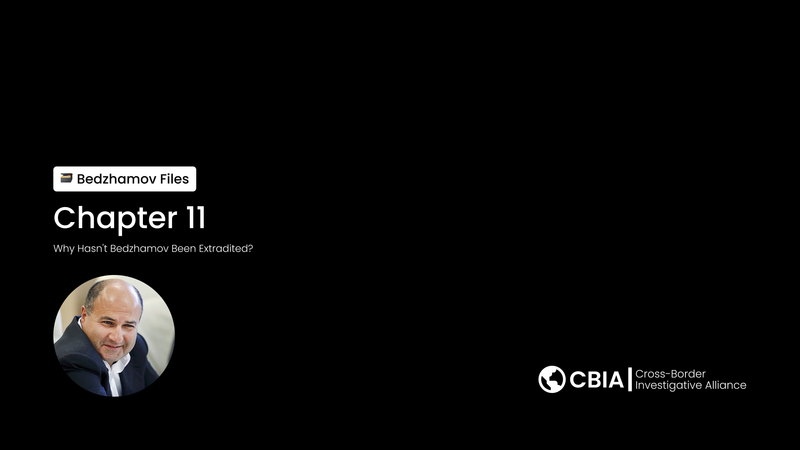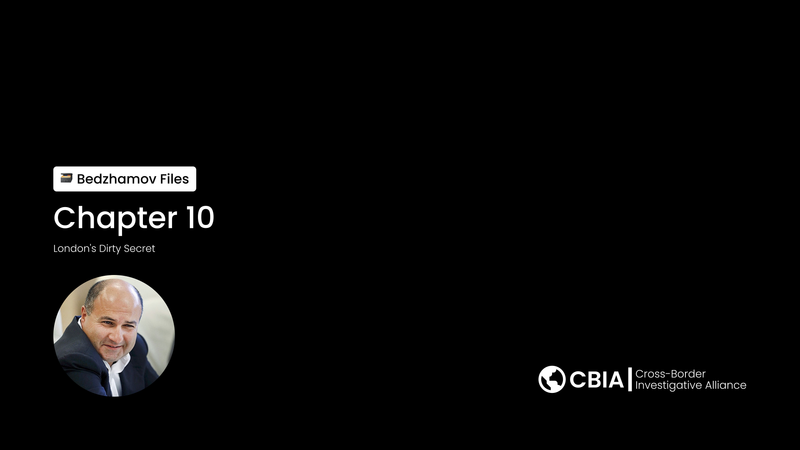Chapter 7: Loyalty and Betrayal
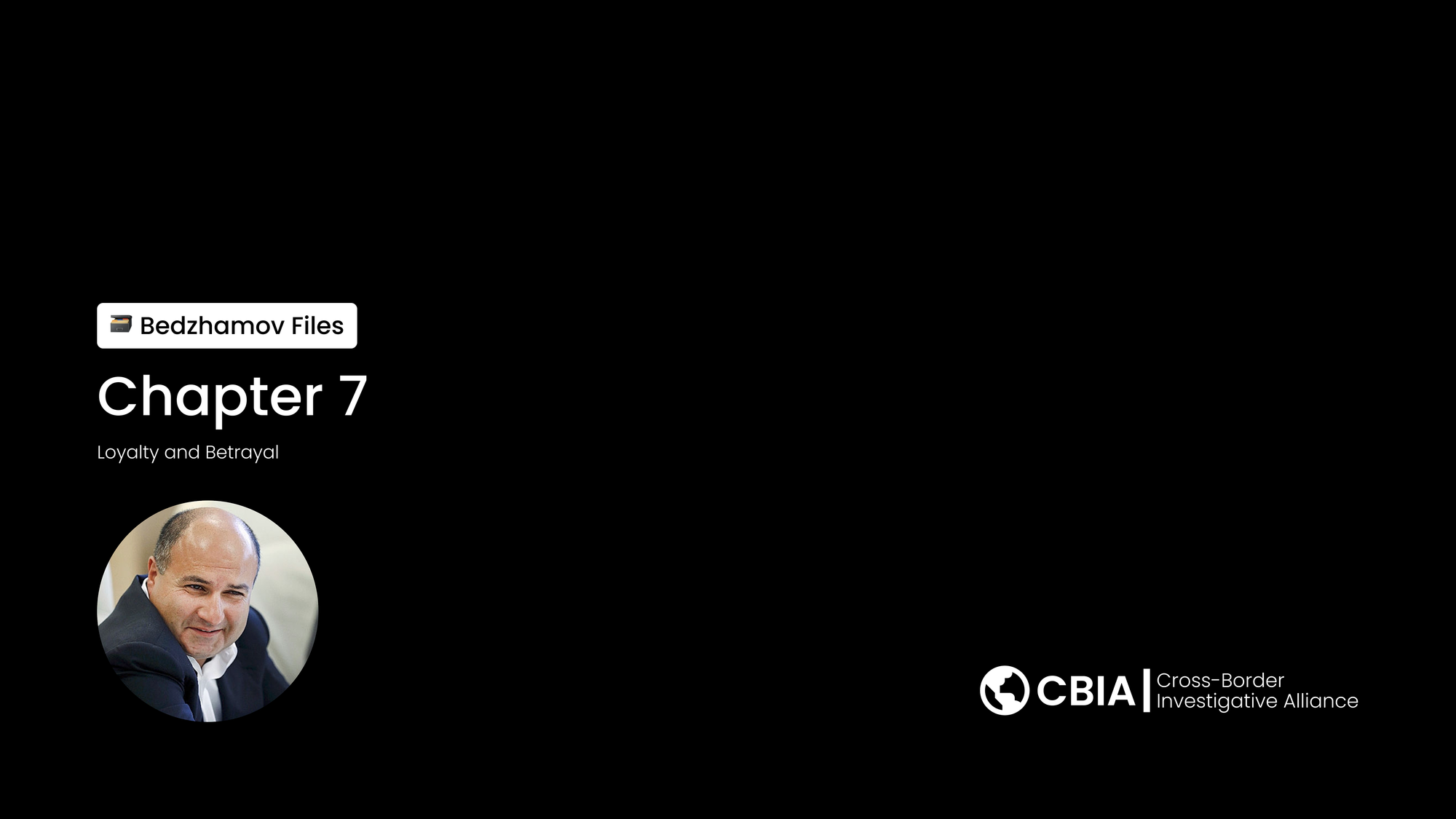
Behind the elaborate financial schemes and international legal battles lies a more personal dimension to the Vneshprombank saga: the complex relationship between Georgy Bedzhamov and Larisa Markus. Once partners in what prosecutors called "a criminal enterprise of unprecedented scale," the siblings' unity fractured under the weight of legal pressure and divergent fates.
The initial phase of the investigation revealed a striking pattern: despite her arrest and detention, Markus appeared determined to shield her brother from the most serious allegations. During interrogations in early 2016, she consistently characterized herself as the primary decision-maker at Vneshprombank, emphasizing her role as president while downplaying her brother's involvement in day-to-day operations.
This protective stance emerged clearly in her testimony, where she portrayed Bedzhamov as focused primarily on client relationships and business development rather than operational decisions. "My brother's position was largely ceremonial," she told investigators according to court transcripts. "He trusted me to manage the bank's affairs and was not involved in loan decisions or financial reporting."
Her initial statements suggested a classic fall-person scenario—one family member absorbing legal consequences to protect another. This dynamic wasn't unusual in Russian business culture, particularly in family enterprises where responsibilities are often divided along gender lines, with men serving as the public face while women sometimes handle operational details.
Legal analysts noted the strategic value of this narrative. "By positioning herself as the principal architect of the fraud, Markus created a defense pathway for her brother," explained one former prosecutor familiar with Russian banking fraud cases. "If he could establish that his role was limited to ceremonial functions and client relationships, he could potentially avoid the most serious charges of direct involvement in embezzlement."
This protective strategy extended beyond mere verbal statements. Financial investigators discovered that in the weeks before the bank's collapse, Markus had signed documents taking personal responsibility for several questionable transactions that bore her brother's fingerprints. These included retroactive board minutes and approval documents that appeared designed to distance Bedzhamov from key decisions.
For a time, this strategy seemed effective. While Markus was swiftly arrested and charged, authorities initially appeared less certain about Bedzhamov's culpability. The charges eventually filed against him were narrower than those against his sister, focusing on his role as a beneficiary rather than as an orchestrator of the fraud.
However, as the investigation deepened and Markus faced the reality of a lengthy prison sentence, cracks began to appear in her loyalty. Sources close to the investigation reported a shift in her demeanor during interrogations in late 2016, as the possibility of a decade in a penal colony became increasingly concrete.
This shift coincided with discoveries about her brother's activities following his departure from Russia. Financial investigators had begun uncovering evidence that Bedzhamov was rapidly restructuring assets once jointly held with his sister. In several instances, ownership records for offshore companies were amended to remove Markus as a beneficial owner, with the changes backdated to appear as if they had occurred years earlier.
One particularly significant case involved a Cypriot holding company that controlled valuable real estate assets in Europe. Documents obtained by investigators showed that days after Markus's arrest, paperwork was filed transferring her 40% stake to her brother. The transfer documentation was dated 2013, creating the appearance that she had relinquished ownership years before the bank's collapse.
Similar patterns emerged across the siblings' shared business empire. Companies in the British Virgin Islands, Luxembourg, and Switzerland—many of which had previously acknowledged both siblings as beneficial owners—were restructured to eliminate Markus's interests. These changes effectively concentrated control of the family's offshore wealth in Bedzhamov's hands at precisely the moment when his sister faced financial ruin and criminal penalties.
Knowledge of these maneuvers appears to have reached Markus in detention. According to a former cellmate who later spoke to Russian media, Markus received legal documents in early 2017 detailing some of these ownership changes. Her reaction, as described by the cellmate, was one of profound betrayal: "She couldn't believe her own brother would cut her out while she sat in prison taking the blame."
This sense of betrayal allegedly prompted a significant shift in Markus's cooperation with authorities. While she had initially protected her brother, she began providing more detailed information about his role in the fraud. According to investigators, this included specifics about his direct involvement in creating shell companies, approving fraudulent loans, and directing the movement of funds offshore.
Court records indicate that Markus provided investigators with access to previously undisclosed email accounts and introduced them to key witnesses who could testify to Bedzhamov's active role in the scheme. This cooperation came too late to significantly reduce her own sentence but provided valuable evidence for the case against her brother.
The siblings' financial separation continued even after Markus's conviction. Assets that might have supported her family during her imprisonment or provided restitution to reduce her sentence were increasingly placed beyond her reach. Properties in Moscow that had been jointly owned were transferred to associates of Bedzhamov, while accounts she had previously accessed were emptied or closed.
This financial abandonment extended to Markus's immediate family. Prior to her arrest, she had supported several family members, including an elderly mother and her children. With her assets either seized by authorities or controlled by her brother, these relatives reportedly faced significant financial hardship. According to Russian media reports, Bedzhamov provided minimal support to these family members despite controlling substantial resources offshore.
The family fracture became public in 2018 when Markus's attorney released a statement expressing his client's sense of betrayal. Without directly naming Bedzhamov, the statement noted that "those who benefited equally from the bank's operations have abandoned their responsibilities to both justice and family, leaving Ms. Markus to bear consequences alone while they enjoy freedom and wealth abroad."
This public acknowledgment of the rift marked a significant change from the united front the siblings had previously presented. It also coincided with Markus providing additional evidence to investigators about offshore structures controlled by her brother—information that proved valuable in international asset recovery efforts.
The May 2024 High Court judgment offers glimpses into the ongoing complexity of the asset recovery process, noting that "VPB's claims against Mr Bedzhamov arise out of his alleged involvement in a major fraud perpetrated on VPB by him and his sister, Ms Larisa Markus" [0]. The court acknowledged the exceptional scale of the claims against Bedzhamov, described as "very considerable indeed" with the VPB claim alone "pleaded at US$1.34bn" [0].
The judgment also highlights how the involvement of A1 as a litigation funder has further complicated the case, with the court noting concerns about whether "the funding agreement with A1 is champertous or not" [0]. These funding arrangements add another layer of complexity to the already intricate relationship between the various parties seeking recovery from Bedzhamov.
The family dynamics in this case extend beyond the sibling relationship. Court documents reference Ms. Kireeva, who serves as Markus's bankruptcy trustee in Russia. The judgment notes that "Ms Kireeva was appointed as Ms Markus's Russian trustee in bankruptcy in October 2016" [0], adding another player to the complex web of relationships surrounding the case.
The breakdown of the siblings' relationship represents more than personal drama—it has significant implications for asset recovery efforts. Markus's cooperation has provided investigators with valuable insights into the offshore structures designed to hide misappropriated funds. However, the effectiveness of this cooperation has been limited by the time that elapsed between the bank's collapse and her decision to provide comprehensive information about her brother's activities.
During this crucial period, Bedzhamov was able to further obscure ownership of key assets, moving them through additional jurisdictions and ownership layers to complicate recovery efforts. Financial investigators have described this as "adding defensive layers to an already complex structure"—creating additional obstacles for those seeking to link assets to misappropriated funds.
The siblings' fallout also highlights a common vulnerability in criminal partnerships: the unequal distribution of consequences often leads to cooperation with authorities. While Bedzhamov enjoys relative freedom in London—albeit restricted by asset freezes and ongoing litigation—Markus faces years in a penal colony. This disparity created powerful incentives for her to provide evidence against her brother, even belatedly.
For victims of the Vneshprombank fraud, the siblings' fracture represents both opportunity and frustration. Markus's cooperation has provided valuable information for recovery efforts, but much of this information came too late to prevent assets from being further concealed. Meanwhile, the protracted legal battles across multiple jurisdictions have delayed meaningful recovery for those who lost savings in the bank's collapse.
The familial aspect of this case also raises questions about how personal relationships influence financial crime. The siblings' partnership initially facilitated their fraud by creating a closed circle of trust at the bank's highest levels. This family dynamic allowed them to operate without the checks and balances that might exist in more conventional corporate structures. However, when legal pressure mounted, this same close relationship fractured under the weight of unequally distributed consequences.
As the legal proceedings against Bedzhamov continue in London and other jurisdictions, the breakdown of sibling loyalty remains a crucial factor in the ongoing story. The information Markus has provided continues to inform recovery efforts, even as her brother fights to protect assets allegedly acquired through their joint criminal enterprise.
The Vneshprombank case thus illustrates how family ties can both enable sophisticated financial crime and ultimately contribute to its unraveling. What began as a partnership built on sibling trust has evolved into a story of betrayal, with profound consequences not only for the siblings themselves but for the broader effort to recover billions in misappropriated funds.
Sources:
[0] Vneshprombank v Bedzhamov, Kireeva v Bedzhamov [2024] EWHC 1048 (Ch)
[1] "Family Dynamics in Financial Crime: Case Studies from Banking Fraud", Criminology Research
[2] "Asset Protection Strategies Following Criminal Charges: Patterns and Motivations", Financial Intelligence Analysis
[3] "Cooperation Incentives in Complex Fraud Cases", Criminal Justice Review
[4] "Offshore Structure Modifications Following Criminal Investigation", Asset Recovery Journal
[5] "The Psychology of Betrayal in White-Collar Crime Partnerships", Forensic Psychology Study


